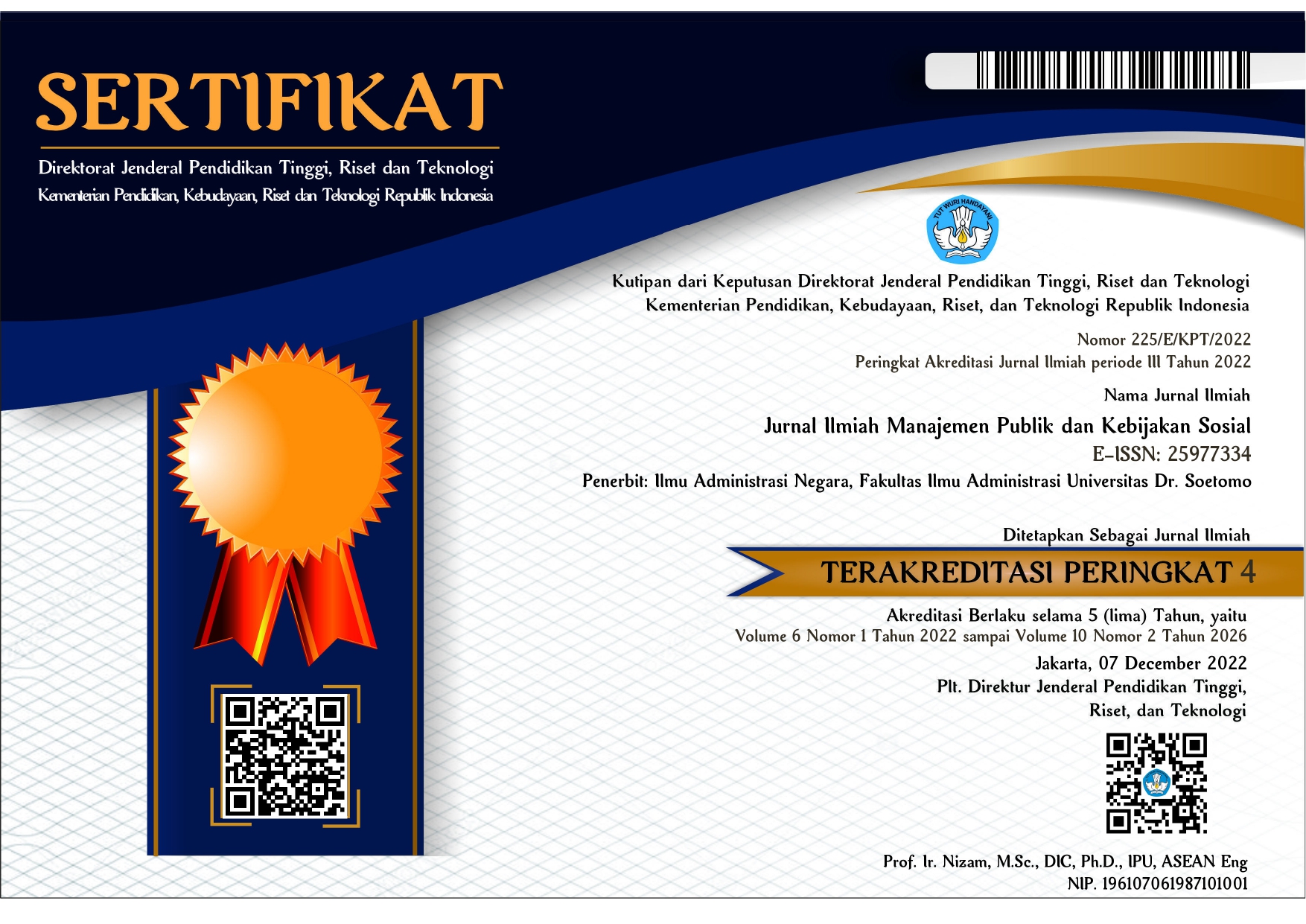Analisis Persepsi Masyarakat Petani Di Kecamatan Mendo Barat Kabupaten Bangka Provinsi Bangka Belitung Terhadap Program Sistem Resi Gudang Dalam Meningkatkan Kesejahteraan Petani
 Abstrak views: 309
,
Abstrak views: 309
,
 PDF (English) downloads: 310
PDF (English) downloads: 310
Abstrak
Referensi
Ashari. (2012). Potensi dan Kendala Sistem Resi Gudang untuk Mendukung Pembiayaan Usaha Pertanian di Indonesia. Forum Penelitian Agro Ekonomi Vol 29 No. 2, 129-143.
Endang, & Mustofa, M. (2018). Analisa Faktor-Faktor yang Menjadi Kendala Pelaksanaan Sistem Resi Gudang (SRG) Kabupaten Bojonegoro. Journal Research and Analysis : Economy, 45 - 51.
Fachruddin, A., & Rahayu, L. (2017). Evaluasi Prasyarat Keberhasilan Sistem Resi Gudang di Kabupaten Bantul. Agraris : Journal of Agribusiness and Rural Development Research Vol.3 No.2, 103-111.
Khasanah, U., & dkk. (2017). A Potency and Challenge of Warehouse Receipts System (WRS) Implementation in Niaga Mukti Cooperation, Cianjur. Agro Ekonomi Vol.28 No.1, 112-125.
Suryani, E., Erwidodo, & Anugrah, I. S. (2014). Sistem Resi Gudang di Indonesia : Antara Harapan dan Kenyataan. Analisis Kebijakan Keuangan Vol.12 No.1, 69-86.
Tsafu, R. (2015). The Role of Warehouse Receipt System in Improving Cashewnuts Marketing by Smallholder Farmers in Mkinga District. Disertasi: Sokoine University of Agriculture.
Widodo, A. S., & Sholichah, M. (2018). Interest of Rice Farmers to Apply Warehouse Receipt System in Bantul Indonesia: Theory of Planned Behavior Approach. Advances in Engineering Research. Vol.172, 245 - 250.
Wirartha, I. (2006). Metodologi Penelitian Sosial Ekonomi. Yogyakarta: Cv Andi Offset.
Authors who publish with JIMPKS: Jurnal Ilmiah Manajemen Publik dan Kebijakan Sosial agree to the following terms:
-
Authors retain copyright and grant the journal right of first publication with the work simultaneously licensed under a Creative Commons Attribution License (CC BY-SA 4.0) that allows others to share the work with an acknowledgment of the work's authorship and initial publication in this journal.
-
Authors are able to enter into separate, additional contractual arrangements for the non-exclusive distribution of the journal's published version of the work (e.g., post it to an institutional repository or publish it in a book), with an acknowledgment of its initial publication in this journal.
-
Authors are permitted and encouraged to post their work online (e.g., in institutional repositories or on their website) prior to and during the submission process, as it can lead to productive exchanges, as well as earlier and greater citation of published work.










